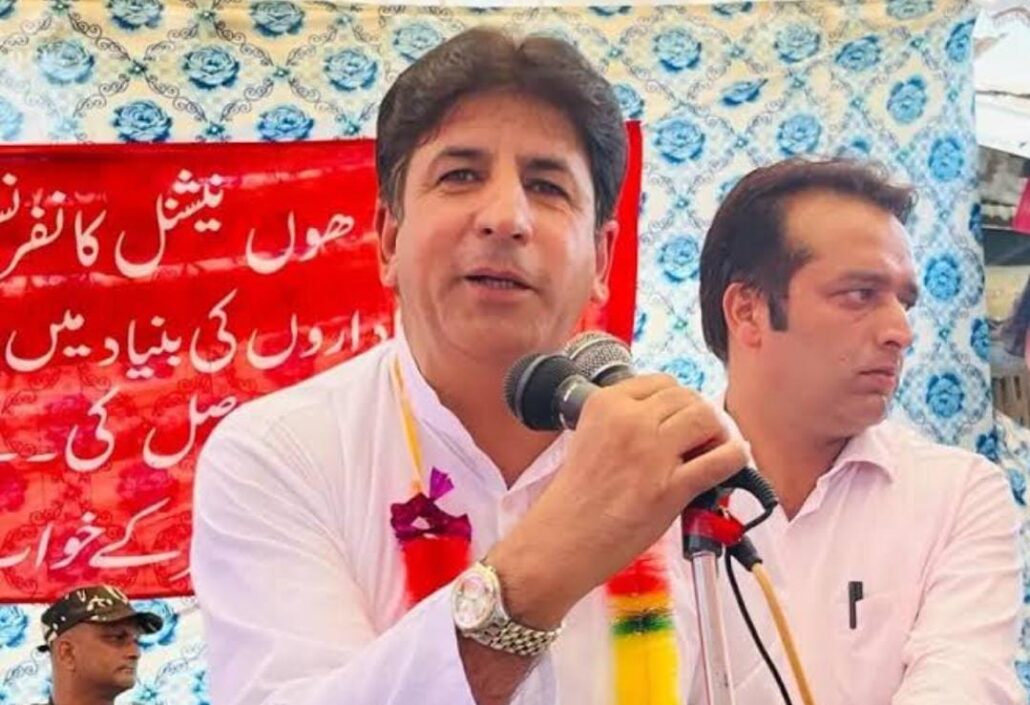
Dr. Syed Bashir Veeri, MLA from Bijbehara, has introduced a Private Member’s Bill aimed at protecting Kashmir’s Karewas from unregulated mining and environmental destruction.
Dr. Veeri, speaking to The Kashmiriyat, confirmed that the bill is set to be introduced during the first session of Jammu Kashmir assembly set to begin on March 03.
The bill, sources said, seeks to regulate the excavation of clay, sand, and gravel while imposing strict penalties for violations.
“Karewas are more than just land formations; they are the backbone of our saffron and horticulture economy,” Dr. Veeri said in the bill.
“Unregulated mining is wiping them out, and we cannot afford to lose this natural heritage.”
The bill, sources told The Kashmiriyat, highlights the geological and agricultural importance of Karewas, describing them as plateau-like formations that have existed for over a million years.
“They are home to Kashmir’s prized saffron fields, almond orchards, and apple plantation,” the draft of the bill reads.
The proposal calls for designating certain Karewa lands as ecological, geological, and archaeological sensitive zones where mining will be strictly prohibited.
However, excavation may be allowed in degraded areas, provided it is approved by the J&K State Environmental Impact Assessment Authority (JKSEIAA).
Environmental Impact Assessments (EIA) will become mandatory before granting mining leases.
“Every mining project will have to pass through strict environmental scrutiny,” Veeri explained. “We need sustainable practices, not reckless destruction.”
The bill also ensures complete protection of Karewa lands used for fruit cultivation, saffron farming, and vegetable production.
To tackle illegal mining, the proposed law introduces penalties of up to ₹10 lakh per violation and up to five years of imprisonment for repeat offenders.
Additionally, government officials found complicit in unauthorized mining could face dismissal and prosecution under anti-corruption laws. Mining equipment and vehicles used for illegal activities will be seized and confiscated.
Another major provision requires prior approval from competent authorities before any construction or excavation on Karewas. In highly sensitive zones, permission must be obtained from the local Village Halqa Majlis (Gram Sabha).
“We are putting decision-making power in the hands of the people,” Veeri said. “Communities should have a say in what happens to their land.”
The bill also calls for a Sustainable Land Use Policy, directing the government to draft a Karewa Conservation and Sustainable Development Plan.
It proposes afforestation efforts, soil conservation measures, and the promotion of sustainable horticulture. Additionally, farmers could receive subsidies for installing solar pumps for irrigation, and selected Karewas could be developed as tourism hubs due to their geological and archaeological significance.
A Karewa Protection Authority (KPA) will be established under the Department of Environment, Ecology, and Forests.
This body will include environmental experts, hydrologists, legal specialists, and representatives from local conservation groups. The KPA will have the authority to conduct inspections, revoke licenses for violations, and recommend policy changes.
Public participation is a key aspect of the bill. A dedicated helpline and online portal will be launched to report illegal mining activities. “We want people to be watchdogs,” Veeri stated.
“If you see someone destroying Karewas, you should be able to report it easily and safely.” Whistleblowers providing credible information will receive protections and incentives.
With rapid urbanization and unregulated mining shrinking Kashmir’s Karewa landmass, environmentalists see this bill as a crucial step toward preservation




